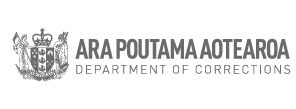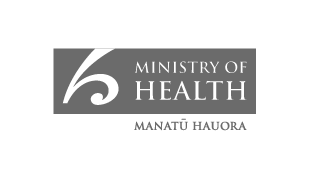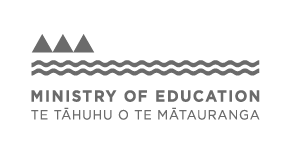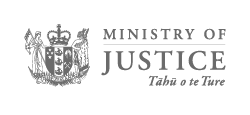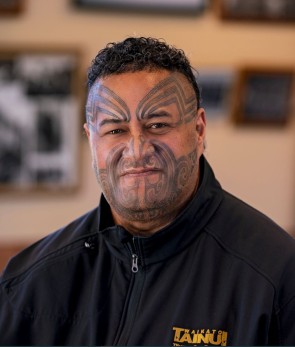 Poata Watene (co-Chair) Poata Watene (co-Chair)
Poata Watene is a visionary leader committed to his iwi, hapū, marae, whānau and the Kingitanga. He is a recognised exponent of te reo me ōna tikanga Māori. Poata Watene is a kaitiaki specialist of te ao Māori who has transformed the culture and practices of organisations he has worked for and had leadership roles in for more than 20 years. This includes being Chief Executive of Tuu Oho Mai Services(external link) since 2019.
Poata has extensive experience in therapy, te ao Māori healing and in restorative pathways which have improved the lives of whānau and provided him with valuable insights into what works for Māori.
|
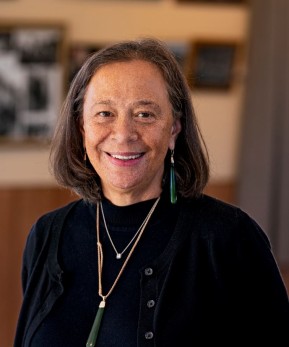 Amokura Panoho (co-Chair) Amokura Panoho (co-Chair)
Amokura Panoho is a recognised leader and change agent in the Māori economic development sector and has extensive governance experience. She has a background in community development and investing in the facilitation of community-based solutions. She also has prior experience working with young people, gangs and in the judicial system.
Amokura has been involved in the development of Māori services (including in the family violence and sexual violence sector), migrant services and has been an active leader for whānau, hapū and iwi initiatives.
|
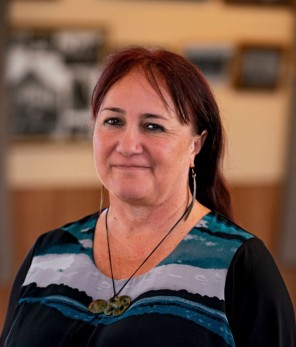 Dr Maria Baker Dr Maria Baker
Dr Maria Baker is a leader and Māori health professional with over 20 years of experience and expertise in health, mental health and social care workforce development for Māori. She is a strategic and critical thinker whose work and research are grounded in te ao Māori and focused on enhancing Māori wellbeing. Dr Baker has strong relationships in Te Tai Tokerau, at national levels and internationally with indigenous communities.
Dr Baker has been the Chief Executive of Te Rau Ora(external link) – Strengthening Health and Wellbeing since 2017 and understands the power of collaboration and the Māori collective.
|
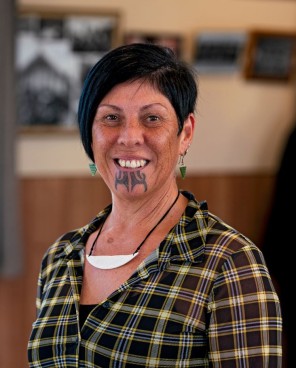 Dr Moana Eruera Dr Moana Eruera
Dr Moana Eruera has more than 30-years’ experience in social and community work, including in family violence prevention, statutory child protection and youth justice, social work education and iwi social services sectors. She has committed her professional career to strengthening whānau, tamariki and rangatahi Māori safety and wellbeing and development and the application of tangata whenua frameworks and practices in social work and community work.
Dr Moana Eruera has had professional roles in government and iwi organisations that have supported her critical understanding of the tensions and barriers that impede meaningful design and implementation of policies, strategies and practices for Māori. She lives within the Ngāpuhi rohe, actively working with her own whānau, hapū and marae and has a fluency and working knowledge of te reo me ōna tikanga.
|
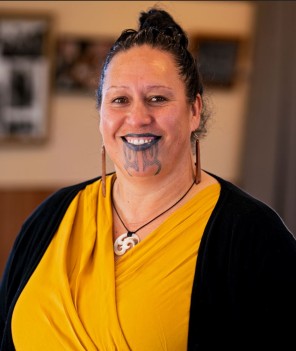 Kim Eriksen-Downs Kim Eriksen-Downs
Kim Eriksen-Downs is a frontline practitioner with more than 30 years’ experience in the social services sector, supporting rangatahi, wāhine and tāne Māori to heal from family violence and sexual violence. She is a national trainer who teaches practitioners indigenous ways of working, a qualified social worker, a renowned Kaiako-a-Kaupapa Senior Facilitator, and the founder of Kaituruki Ora o Te Hapori Ora(external link) – the Village of Wellbeing.
Kim is a specialist who celebrates and values community mobilisation and co-design to transform all types of violation. She has transformed her Tūwharetoa community at the grassroots level. Kim Eriksen-Downs is an acknowledged leader whose influential mahi and commitment to Māori wellbeing is validated by her whānau, hapū and iwi.
|
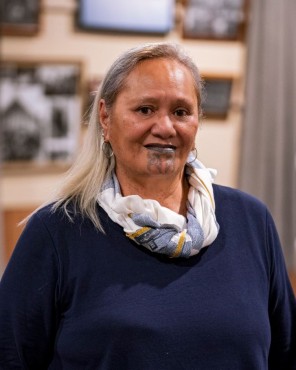 Lorraine Hawke Lorraine Hawke
Lorraine Hawke has spent more than 40-years developing grassroot strategies to eliminate sexual violence (and the underlying drivers) within her whānau, hapū and Kaikōura community. Her courageous leadership, advocacy and innovative whānau ora approach informed the development of Tū Pono: Te Mana Kaha o te Whānau, a strategy to eliminate violence across Te Wai Pounamu.
Lorraine Hawke has first-hand experience of the need for comprehensive approaches, long-term support and championing environments that are culturally conducive and systemically safe for Māori.
|
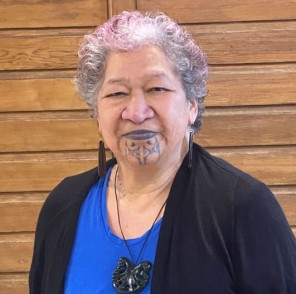 Hera Pierce Hera Pierce
Hera Pierce is recognised by tangata whenua and tauiwi as a subject matter expert on the impacts of family violence and sexual violence for whānau and hapori Māori. Her knowledge, expertise and practice epitomise the values and principles which are fundamental to Māori healing from the trauma of violence and achieving toiora.
Hera is passionate about working with whānau, hapū iwi and hapori Māori and strives to teach current and future generations about the importance and sacredness of te ira tangata, te ira Atua, te whare tangata and whakapapa. She uses her wealth of mātauranga Māori, fluency in te reo me ōna tikanga Māori to provide services and supports that are relevant and meet the needs of whānau, hapū and iwi.
|
|
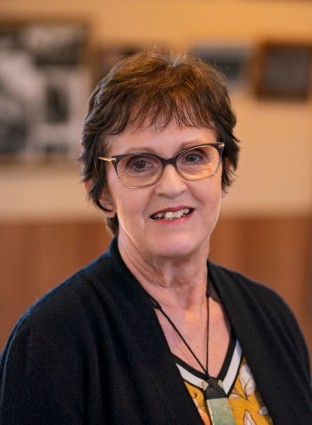
Professor Denise Wilson
Professor Denise Wilson is a Māori researcher whose work aims to improve understanding of systems and policy changes required to prevent family violence and address the harm it creates for Māori. Her own lived experience informs her empathetic and insightful understanding of wāhine and mokopuna Māori living with whānau violence.
Professor Denise Wilson uses kaupapa Māori and indigenous approaches to research to provide whānau opportunities to share their stories in the hope that their voices will be heard by decision and policy makers and compel them to make the changes necessary to improve outcomes for tangata whenua. She has had leadership roles in government advisory groups (including the Family Violence Death Review Committee) and is currently the Co-Director of Taupua Waiora Centre for Māori Research and the Associate Dean for Māori advanced at the Auckland University of Technology.
|
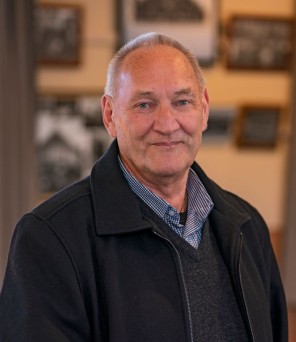 Tā Mark Solomon Tā Mark Solomon
Tā Mark Solomon is a respected Māori leader and agent of change for tangata whenua. He has had pivotal roles in regional (for Ngāi Tahu) and national (including through the Iwi Leaders Forum) tangata whenua-led bodies and has used his experiences and knowledge of government systems, processes and policy development to advocate for and effect change at government and community levels (including through the Interim Te Rōpū, Te Ohu Kaimoana and Oranga Tamariki).
Tā Mark Solomon’s commitment to his iwi is equally matched by his commitment to and compassion for his own whānau, hapū and hapori. He is a tireless and fearless champion of the need for real accountability by both government and Māori.
|
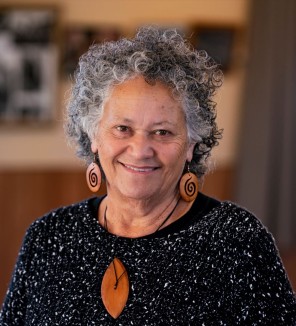 Katie Murray Katie Murray
Katie Murray has served her whānau, hapū, iwi and hapori Māori in Whangaroa and the wider Te Tai Tokerau rohe for 40 years. She has been the Kaiārahi (Chief Executive) of Waitomo Papakainga Development Society Inc since 1993, a social service organisation she established with her whānau for her whānau, to support and protect the institute of whānau.
Katie is an innovator, activist, collaborator and acknowledged leader in te rohe o Te Tai Tokerau. She has spent her life fighting covert and overt racism, striving to create better opportunities for communities and empowering whānau. Her work is grounded in te ao Māori, with years of experience supporting whānau through whanaungatanga, facilitating and developing practical programmes enriched in values such as aroha, tika, pono. Katie Murray is passionate, and her life’s work is sustained, above all else, by her immense love for her children, mokopuna and whānau.
|
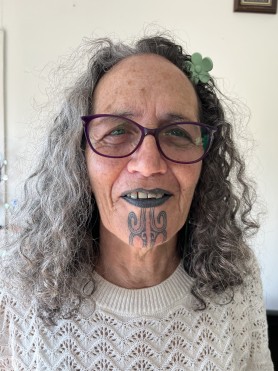 Denise Messiter Denise Messiter
Denise Messiter is a strategic, assertive and analytical practitioner with over 30 years’ knowledge and experience in the family violence, sexual violence and social sectors. She has focused on developing and implementing indigenous solutions and worked tirelessly to support wāhine and their whānau to heal from the impacts of mahi tūkino. Her efforts to ensure whānau, hapū and iwi in Hauraki have access to enduring tangata whenua owned and led social services, has made her a valued member of her iwi Māori community of Manaia.
Denise has extensive and comprehensive networks across the health, social and tangata whenua communities. She is compassionate, understands her people and her work has made real and positive differences to the social and economic wellbeing of whānau Māori nationally, regionally and in her community.
|
